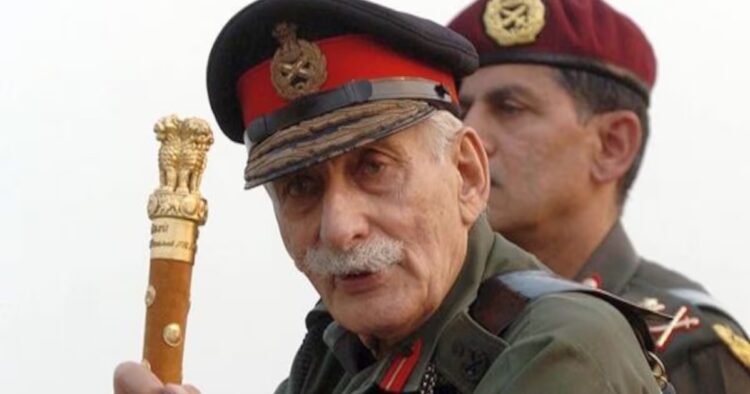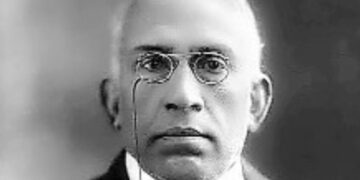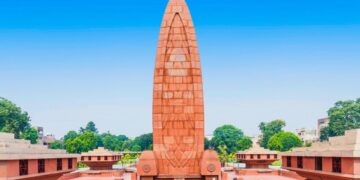1. The Indian Penal Code came into force on January 1, 1862, during the British period. After this, amendments were made in it from time to time. Pakistan and Bangladesh have also adopted the Indian Penal Code. The IPC came into existence in 1860 on the recommendation of the first Law Commission of British India. However, three laws made during the British era have now expired. President Draupadi Murmu has approved all three new criminal law bills. After which the Indian Penal Code 1860 (IPC) will now be known as the Indian Judicial Code 2023, the Code of Criminal Procedure 1898 (CrPC) will now be known as the Indian Civil Protection Code 2023 and the Indian Evidence Act 1872 (IEA) will now be known as the Indian Evidence Act 2023. Earlier there were a total of 511 sections in the Indian Penal Code (IPC), but only 358 sections are left in the Indian Judicial Code. 20 new offenses have been included in the amended law.
*Indian Penal Code came into force today itself
*IPC came into existence in 1860
*Laws made during the British era will expire in the year 2023
2. After the dissolution of the British East India Company, it was announced on 1 January 1877 that India had come under the rule of Queen Victoria and Queen Victoria is now the Queen or Head of State of India. Queen Victoria was given the title of ‘Kaiser-e-Hind’ i.e. Queen of India in Coronation Park, Delhi. The British government ruled India from 1757 to 1947. British rule in India began after the Battle of Plassey in 1757. After the Battle of Plassey, the East India Company established a monopoly on trade with India with the help of a system of finance and revenue.
*On this day Queen Victoria became the President of India
*Queen Victoria became the President of India under the British government.
*The British government ruled India from 1757 to 1947.
3. Money order service started in the country on January 1, 1880. This service continued for 135 years. Today, money transactions may have become very easy through UPI, but at one time in some village, it may be Raju’s elderly mother, Mangroo’s old father or the household ration, children’s school dress, medicine expenses or Lala’s loan… everything was fulfilled with the help of money order. Through money order, any person could go to the nearest post office, deposit money, pay the fee and send the money order to his home or the address where he had to send the money. The money given by him was deposited in the postal department and when the paper money order reached his address, the postman would give the money to the person concerned in cash. In the 19th century, this service was no less than a revolution.
*Money order service was started on this day itself.
*This service was no less than a revolution
4. The Republic of China was established on January 1, 1912. On this day, the Republic of China was established with the fall of the feudal monarchy Qin dynasty. The founder of the Republic of China was Sun Yat-sen. The current President of China is Xi Jinping, succeeding Hu Jintao.
*Republic of China was established on this day
5. Ceasefire was declared in Jammu and Kashmir on January 1, 1949. Due to this ceasefire, a large part of Jammu and Kashmir came under the illegal occupation of Pakistan. There was no attempt to bring it back during the Nehru period. However, later on, the first serious attempt for this was seen on 22 February 1994 under the Narasimha Rao government. After that Modi government removed Article 370 on 5th August. Now there is only one question left between India and Pakistan, that is the return of PoJK… whose return is the resolve of the whole of India.
*Ceasefire was announced in J&K on this day
*A large part of J&K had gone under the illegal occupation of PAK.
*Resolution of entire India for withdrawal of PoJK
6. On January 1, 1973, General Sam Manekshaw was made the country’s first Field Marshal. General Sam Manekshaw is also known as Sam Bahadur. Under the leadership of Sam Manekshaw, India defeated Pakistan in the 1971 war. On December 3, 1971, Pakistani army attacked India. India responded to the Pakistani attack in such a way that within 13 days the Pakistani army laid down its arms and more than 90 thousand soldiers of Pakistan surrendered. It is believed that this was the largest number of soldiers laying down their arms in any war. Pakistan suffered heavy losses in the 1971 war and a new country Bangladesh was born. The credit for this memorable victory of the Indian Army goes to Sam Manekshaw.
*General Sam Manekshaw was the first Field Marshal of the country.
*Also known as Sam Bahadur
*Played an important role in the India-Pakistan war in 1971
*The credit for India’s victory in 1971 goes to Sam Manekshaw.
7. The World Trade Organization came into existence on January 1, 1995. The World Trade Organization (WTO) sets the rules for world trade. This organization was established in 1995 to replace the General Agreement on Tariffs and Trade (GATT) created after World War II. At present it has 164 members. All decisions are taken unanimously. Its headquarters is in Geneva.
*WTO came into existence on this day
*WTO makes rules for world trade
*WTO is headquartered in Geneva.
8. Calcutta was officially renamed Kolkata on January 1, 2001. Kolkata is also called ‘The City of Joy’. It is one of the largest cities in India. Famous French writer Dominique Lapierre first gave Kolkata the nickname “City of Joy” in his book.
*On this day Calcutta was renamed Kolkata.
*Kolkata is also known as ‘The City of Joy’
9. On January 1, 1971, Jyotiraditya Scindia, a Union minister from the royal family, was born in Mumbai. Jyotiraditya Scindia is the son of Madhavrao Scindia. After the death of his father, Jyotiraditya Scindia started politics from Congress. But in 2020, he brought about the biggest change of power in the politics of Madhya Pradesh, which got recorded in the political history of the state. After joining BJP, Scindia’s stature is continuously increasing.
*Jyotiraditya Scindia’s birthday today
*Scindia is the Union Civil Aviation Minister
10. Hindu Revolution Day is celebrated on 1 January. On this day in the year 1670, Aurangzeb got the brave Gokula Jat killed. His body parts were chopped off for not accepting Islam. After Maharana Pratap and Chhatrapati Shivaji Maharaj, Veer Gokula Jat had shaken the power of Aurangzeb. To deal with Veer Gokula Jat, Aurangzeb himself had to come to Mathura from Delhi. There was a battle of Tilpat between the Mughal army and the Jats, which lasted for three days. Historians believe that Gokula Jat was the descendant of Maharaja Surajmal. Gokula Jat had sacrificed his life to protect Hindu religion 5 years before Guru Tegh Bahadur.
*Hindu Revolution Day today
*The sacrifice of Gokula Jat is celebrated in honor
*Gokula Jat had shaken Aurangzeb’s power.

















Comments